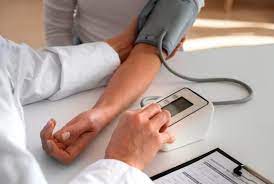
The World Health Organization (WHO) shed light on the alarming consequences of high blood pressure or hypertension, emphasizing that this silent killer can lead to severe health problems if left untreated.
Hypertension is a prevalent global health issue, often referred to as the “silent killer” due to its asymptomatic nature. The WHO’s first-ever comprehensive report on the subject reveals that approximately 4 out of every 5 people with hypertension are not receiving adequate treatment.
High blood pressure is a major contributor to cardiovascular diseases, including strokes, heart attacks, heart failure, and kidney damage. In India alone, over 10.8% of all deaths are attributed to hypertension, according to the Indian Council of Medical Research (ICMR).
The report also highlights a startling statistic: the number of people living with hypertension has doubled between 1990 and 2019, surging from 650 million to a staggering 1.3 billion worldwide.
Alarmingly, roughly half of the individuals with hypertension are unaware of their condition. While factors like genetics and age can increase the risk of high blood pressure, lifestyle factors such as a high-salt diet, physical inactivity, and excessive alcohol consumption can also contribute to hypertension.
Dr. Tedros Adhanom Ghebreyesus, the Director-General of WHO, underscored the importance of hypertension control, stating, “Hypertension can be controlled effectively with simple, low-cost medication regimens, and yet only about one in five people with hypertension have controlled it.”
He stressed the need for strengthening hypertension control programs within national health coverage frameworks.
The report highlights that implementing practical treatment protocols, ensuring a consistent supply of affordable medications, adopting team-based care, offering patient-centered services, and enhancing information systems can contribute to more effective hypertension management.
Importantly, increasing the number of individuals effectively treated for hypertension to levels observed in high-performing countries could prevent a staggering 76 million deaths, 120 million strokes, 79 million heart attacks, and 17 million cases of heart failure by 2050.
The prevention, early detection, and effective management of hypertension are among the most cost-effective interventions in healthcare. By prioritizing these measures, it is possible to mitigate the devastating impact of high blood pressure and save countless lives.